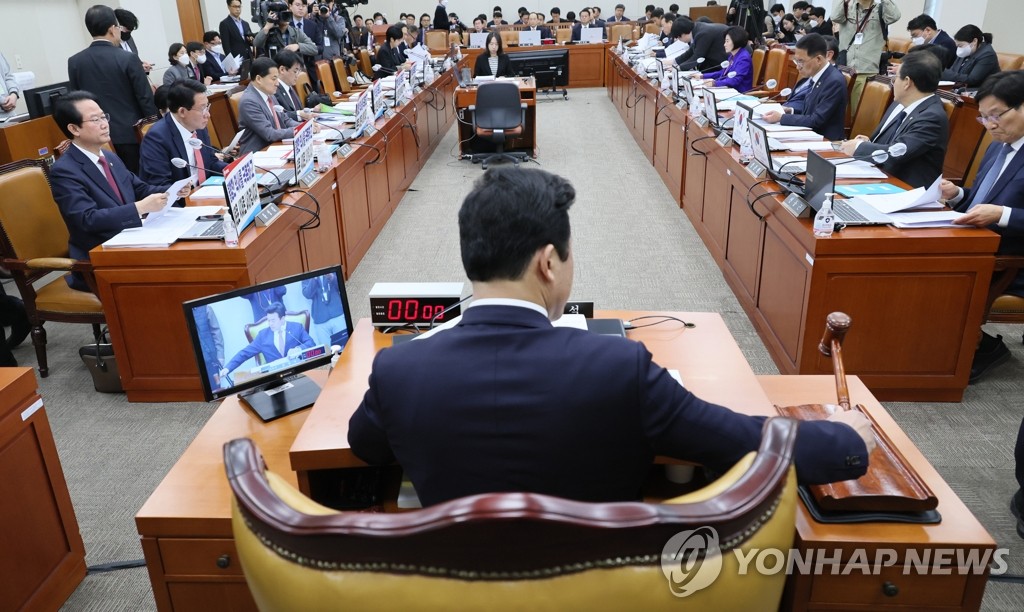- California Assembly OKs highest minimum wage in nation
- S. Korea unveils first graphic cigarette warnings
- US joins with South Korea, Japan in bid to deter North Korea
- LPGA golfer Chun In-gee finally back in action
- S. Korea won’t be top seed in final World Cup qualification round
- US men’s soccer misses 2nd straight Olympics
- US back on track in qualifying with 4-0 win over Guatemala
- High-intensity workout injuries spawn cottage industry
- CDC expands range of Zika mosquitoes into parts of Northeast
- Who knew? ‘The Walking Dead’ is helping families connect
Parliamentary committee passes bill on expanding tax incentives for chipmakers
The parliamentary strategy and finance committee Wednesday passed a bill aimed at supporting the semiconductor industry by giving bigger tax incentives to chipmakers.
The proposed revision to the Act on Restriction of Special Taxation, nicknamed the K-Chips Act, centers on expanding the tax credit rate for companies that make facility investments in national strategic industries, including semiconductors, secondary batteries and future cars.
Under the bill, the tax credit rate for conglomerates will rise to 15 percent from the current 8 percent, while the rate for small and medium-sized businesses will increase to 25 percent from 16 percent.
An additional 10 percent cut will also be applied to the increased amount of investments compared with the previous three-year average.
The Ministry of Finance and Economy expects the measure to save businesses an additional 3.3 trillion won (US$2.52 billion) in taxes in 2024.
“Following the pandemic and shortages in the supply of chips, the international community is rediscovering the economic and security value of having production capacities at home,” the ministry said in a statement, released after the passage.
“As the amount of investment by South Korean firms, including chipmakers, is expected to contract significantly this year, we need groundbreaking supportive measures to secure global competitiveness of the key strategic industries and revitalize their investment sentiment,” it added.
Asia’s No. 4 economy depends heavily on chips for its exports, but outbound shipments have been losing ground significantly recently in the face of the industry’s global downcycle.
Exports of chips plunged 44.7 percent on-year to reach $4.32 billion over the first 20 days of March, according to the data from the Korea Customs Service released earlier this week.
The revision bill is set to be put to a vote at a parliamentary plenary session scheduled for March 30.












